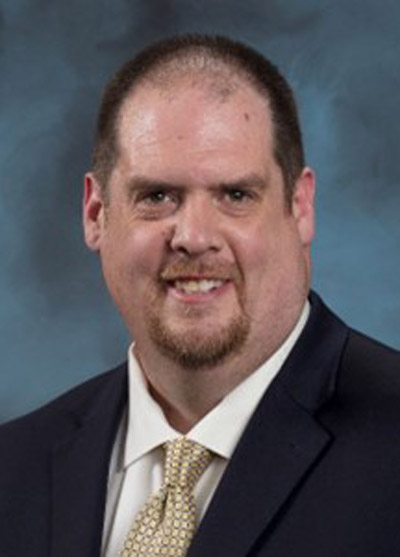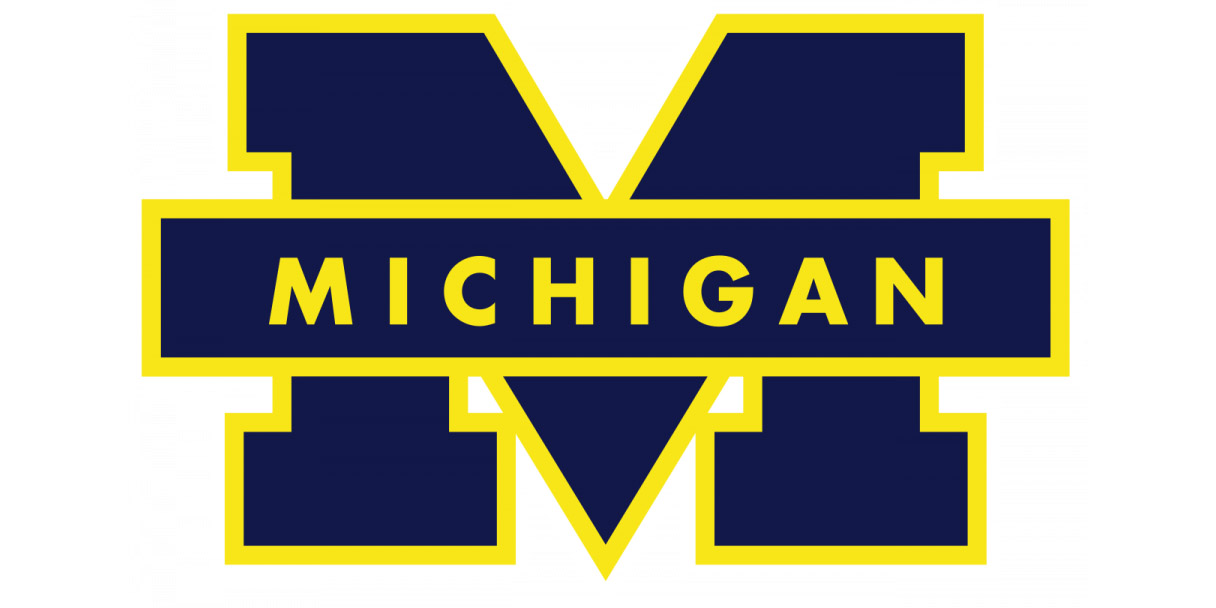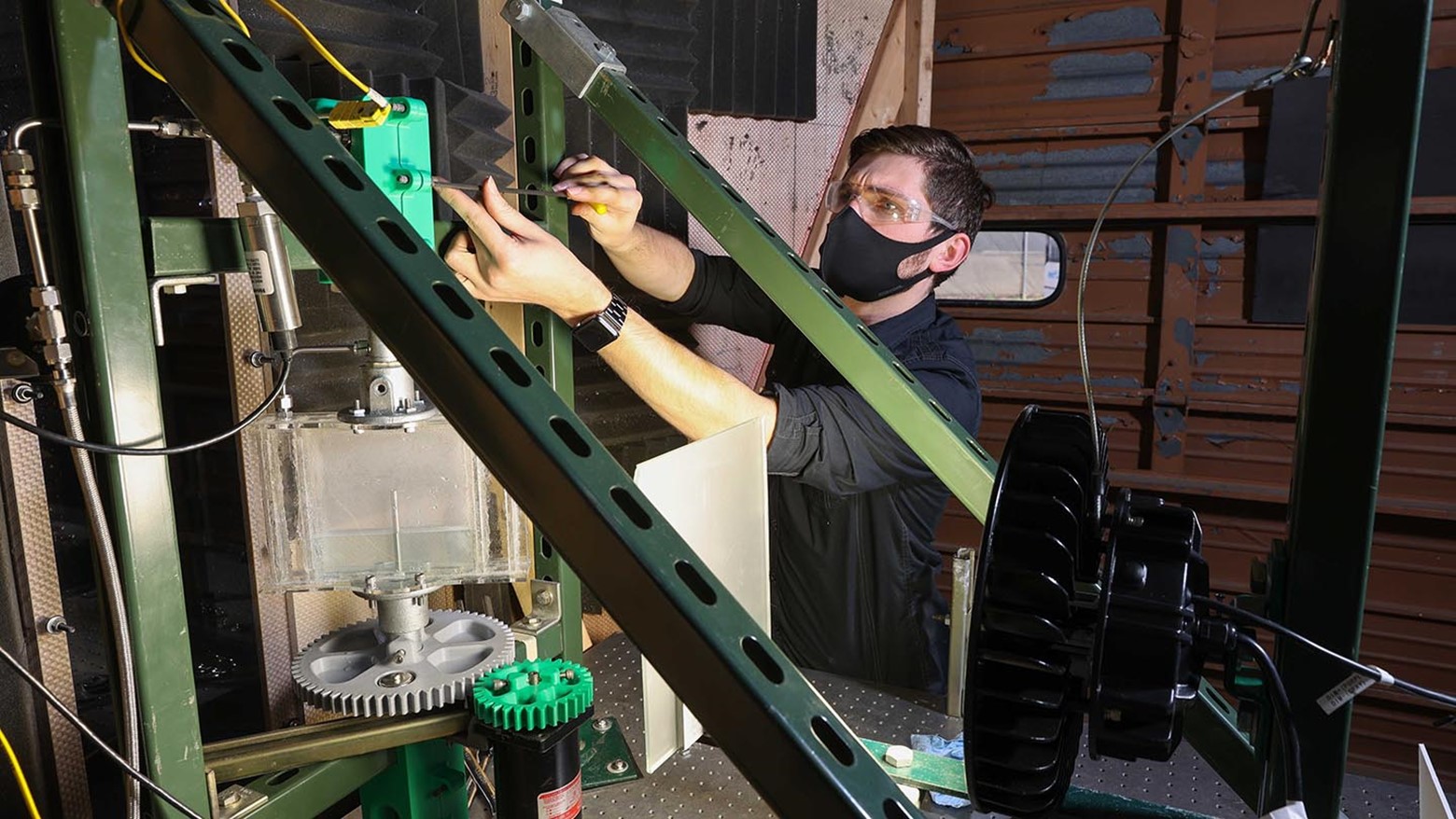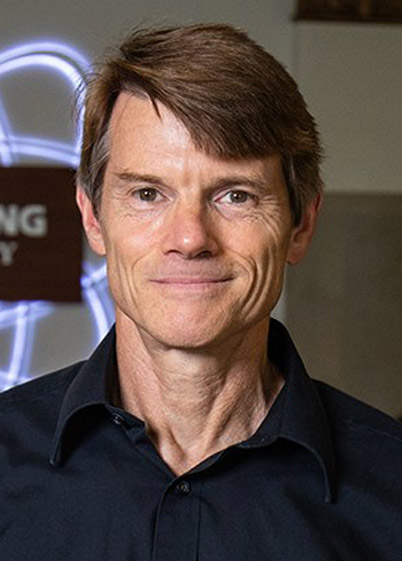The H9 Hall thruster, developed at UMich’s Plasmadynamics and Electric Propulsion Laboratory. (Image: William Hurley/University of Michigan)
Seeking spacecraft that can “maneuver without regret,” the U.S. Space Force is investing $35 million in a national research team led by the University of Michigan to develop a spacecraft with an onboard microreactor to produce electricity, with some of that electricity used for propulsion. But this spacecraft would not be solely dependent on nuclear electric propulsion—it would also feature a conventional chemical rocket to increase thrust when needed.
A student demonstrates VR models of fission and fusion energy systems. (Photo: University of Michigan)
A new course at the University of Michigan offered by the Nuclear Engineering and Radiological Sciences (NERS) Department seeks to address the lack of community engagement in the design of energy technologies by pioneering a socially engaged approach.
Tohoku University’s Sakura Hall was the site of a workshop coffee break and photo op. (All photos: University of Michigan/Tohoku University)
Tohoku University in Sendai, Japan, was the site of an advanced nuclear reactor workshop in late May that was hosted by the Fastest Path to Zero Initiative of the University of Michigan and Tohoku’s Center for Fundamental Research on Nuclear Decommissioning. The event was co-organized by the U.S. Consulate in Sapporo, Japan, and the Atlantic Council, which is associated with the North Atlantic Treaty Organization. The workshop, “The Potential Contribution of Advanced Nuclear Energy Technologies to the Decarbonization and Economic Development of Japan and the U.S.,” featured numerous American and Japanese academic authorities, government policymakers, executives of utilities and advanced reactor developers, and leaders of nongovernmental organizations. Also participating were students from both the University of Michigan and Tohoku University.
High school students Madison Henley of Detroit, Mich. (left) and Simon Fadare of Atlanta, Ga., work on a project to imagine and build a future nuclear energy device. (Photo: Brenda Ahearn/Michigan Engineering)
The first Harper Academy 4 Future Nuclear Engineers was held recently at the University of Michigan. The four-week program provided eight rising high school seniors with classes in nuclear engineering fundamentals, mathematics, technical skills, design, community engagement, and college preparation. While taking the course, the students stayed at Bursley Hall on the university’s Ann Arbor campus.
The color-coded scatterplot shows the feasibility of coal-to-nuclear transitions at smaller coal plants (1,000 MWe or less) across the United States, plotted by latitude and longitude. Red and warm colors represent the high feasibility. (Image: Muhammad Rafiul Abdussami, Fastest Path to Zero, University of Michigan)
Comprehensive analysis of 245 operational coal power plants in the United States by a team of researchers at the University of Michigan has scored each site’s advanced reactor hosting feasibility using a broad array of attributes, including socioeconomic factors, safety considerations, proximity to populations, existing nuclear facilities, and transportation networks. The results could help policymakers and utilities make decisions about deploying nuclear reactors at sites with existing transmission lines and a ready workforce.
Trends in percentages of the U.S. public favoring or opposing nuclear energy from 1983 to 2024. (Graphic: Bisconti Research)
Results of two new surveys have shed light on American public opinion regarding nuclear energy. The surveys, which were conducted with very different methods, offer generally encouraging news for the nuclear industry.
Ana Kova’s illustration of different types of fusion. (Image: Ana Kova/Global Fusion Forum)
Ben Campbell, a graduate research assistant and master’s degree student in aerospace systems engineering, works on the Bubbling Liquid Experiment Navigating Driven Extreme Rotation, or BLENDER, device at UAH’s Johnson Research Center. (Photo: UAH/Michael Mercier)
With three commercial teams under contract to produce reactor designs for nuclear thermal propulsion rockets that would use solid high-assay low-enriched uranium fuel to heat hydrogen propellant, NASA’s investment in nuclear thermal propulsion (NTP) has increased in recent years. But just as there is more than one way to fuel a terrestrial reactor, other fuels are under consideration for future NTP rocket engines.
[CLICK TO VIEW FULL IMAGE] The diagram at left illustrates the experimental setup and the resulting zirconium oxide layer of varying thickness. The second diagram shows the circular zirconium alloy sample that is affected by the band of nickel alloy and radiation. Finally, the electron image at right shows a band of oxidation on the zirconium alloy sample. (Images: Peng Wang, Michigan Ion Beam Laboratory)
A longstanding issue in boiling water reactors—shadow corrosion on zirconium alloy fuel rods and fuel channels—has been reproduced in the Michigan Ion Beam Laboratory as part of an effort to understand and prevent the phenomenon. Research led by Peng Wang, a University of Michigan assistant research scientist in nuclear engineering and radiological sciences, was published in the January 2022 issue of the Journal of Nuclear Materials and described in a recent university news article.




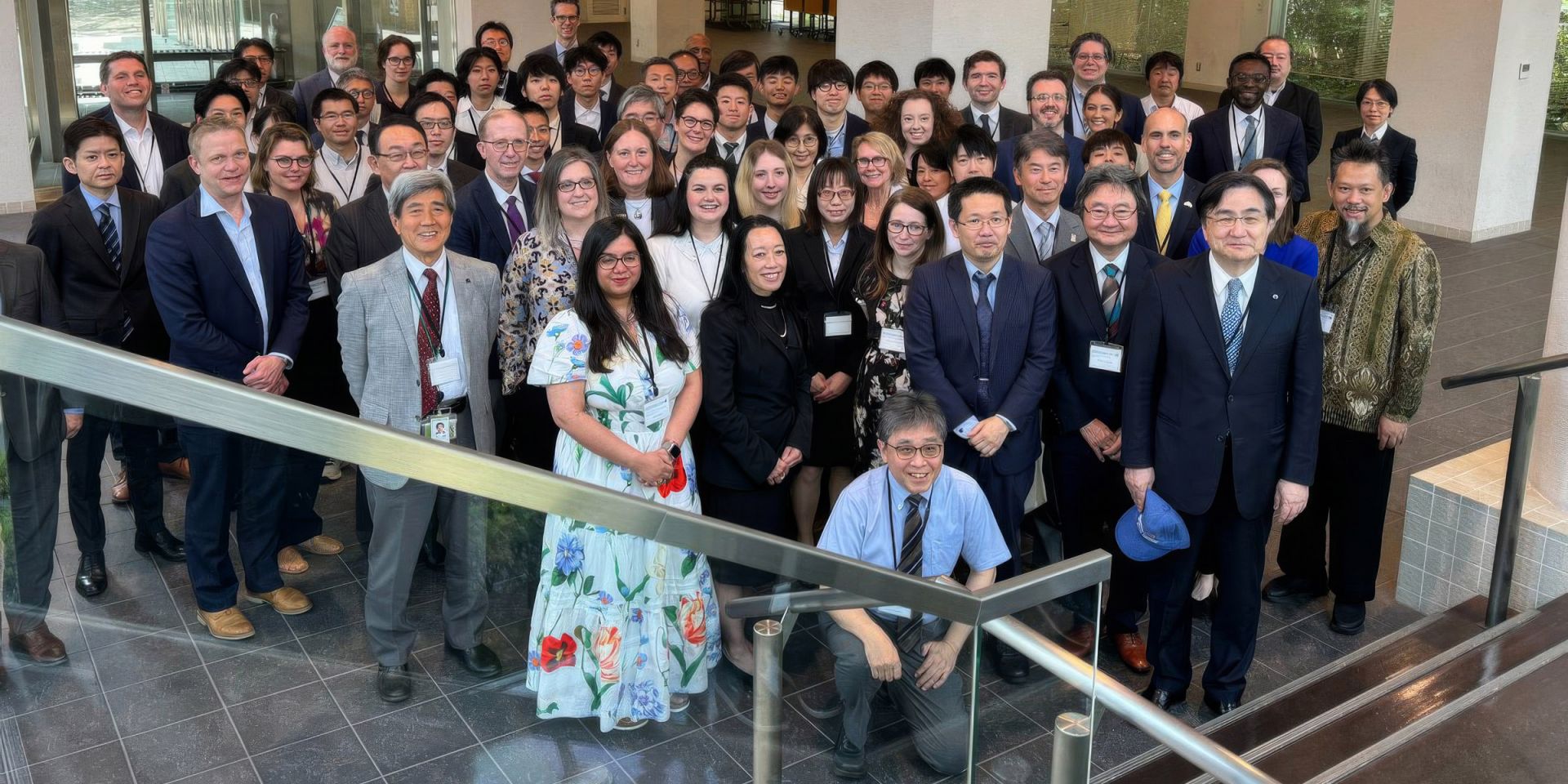
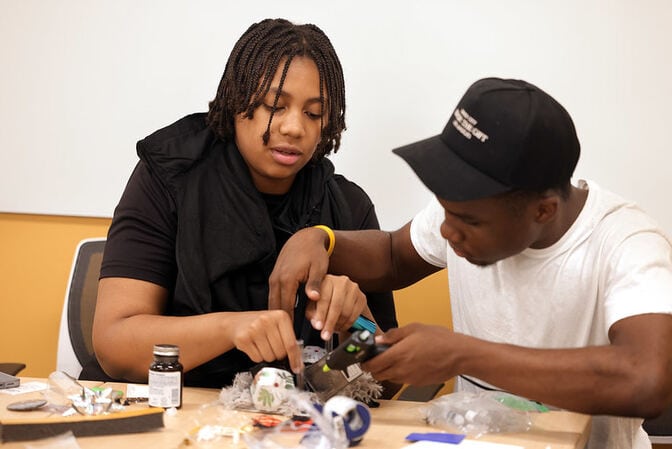
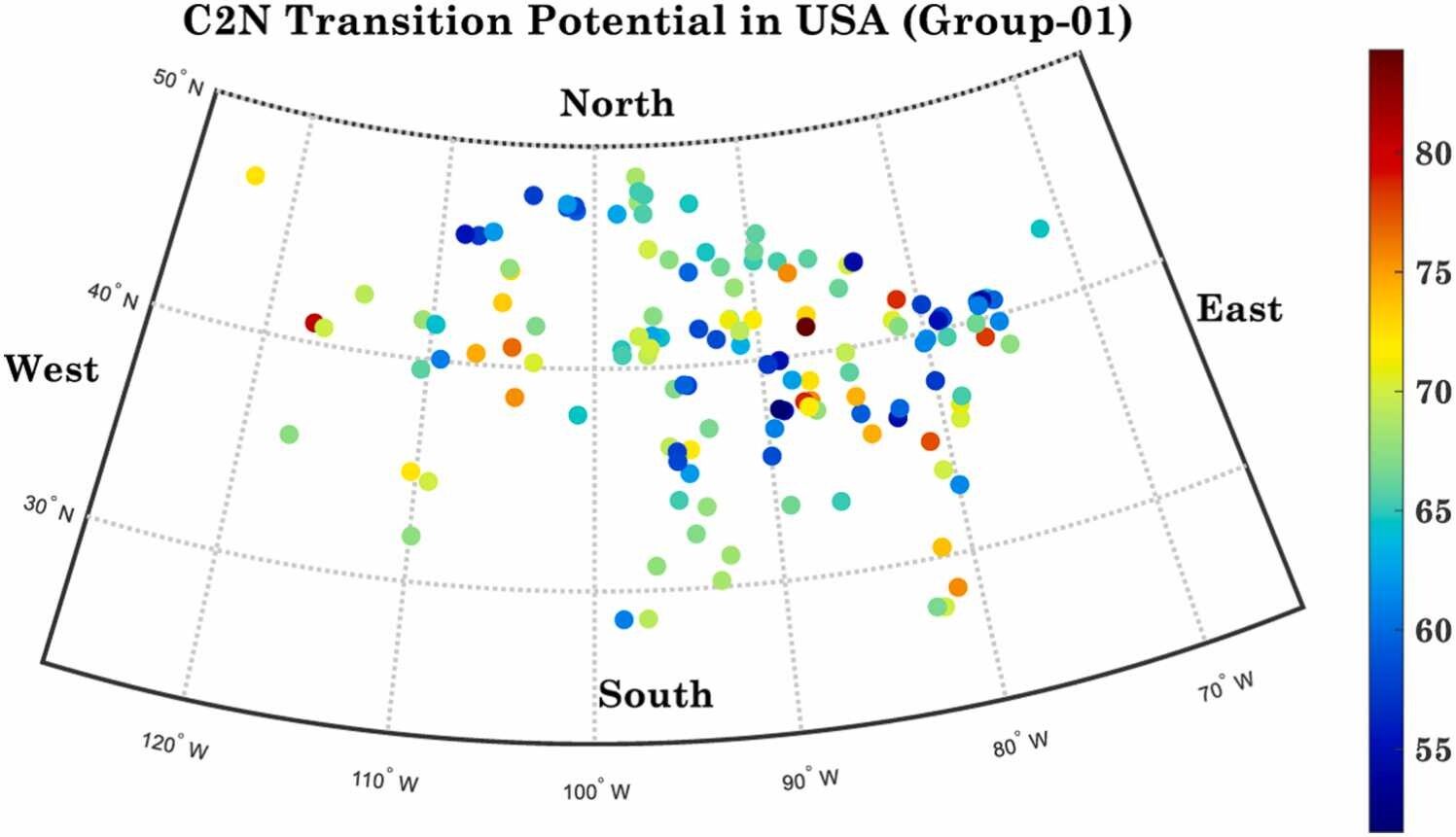
 2x1.jpg)


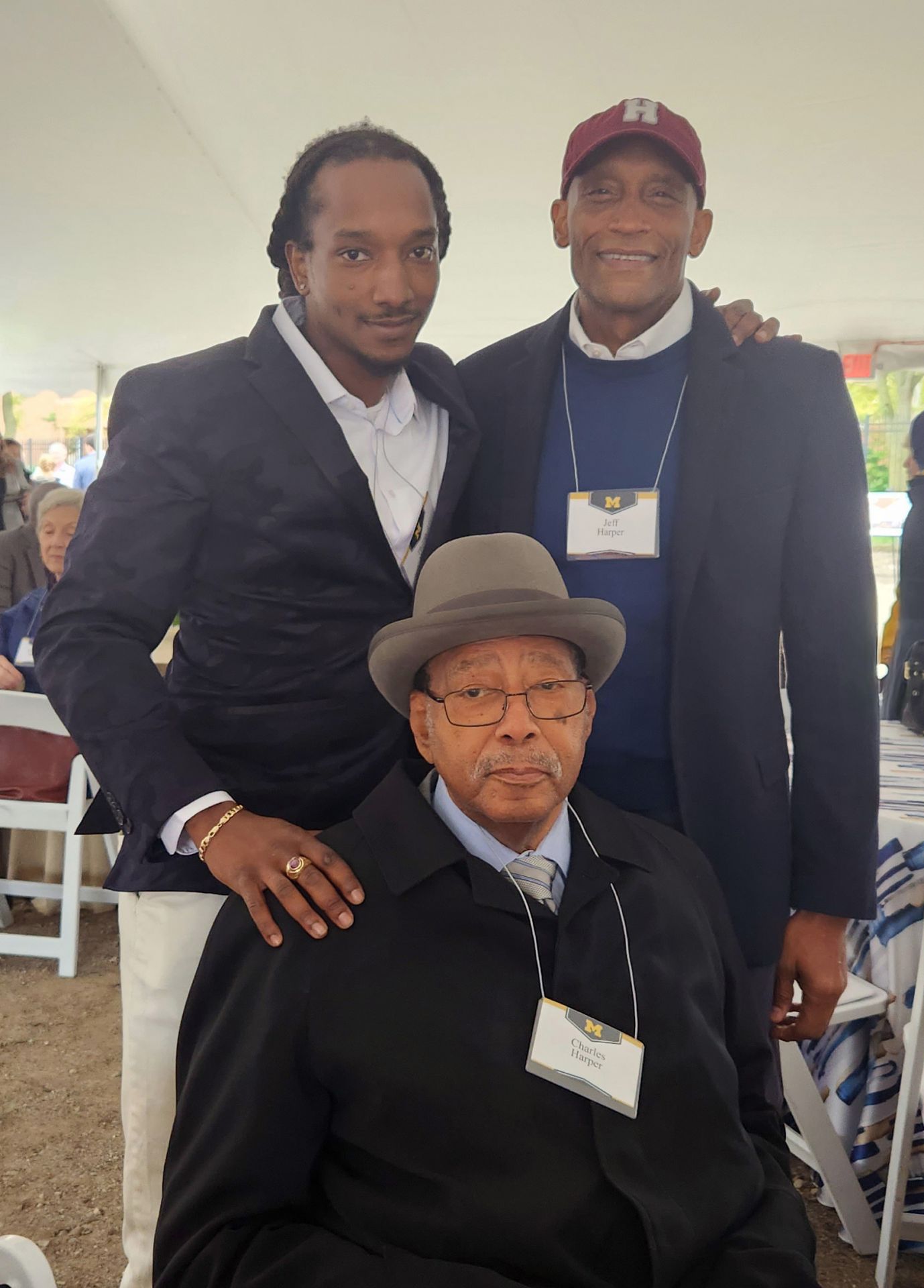

 In a follow-up to
In a follow-up to 